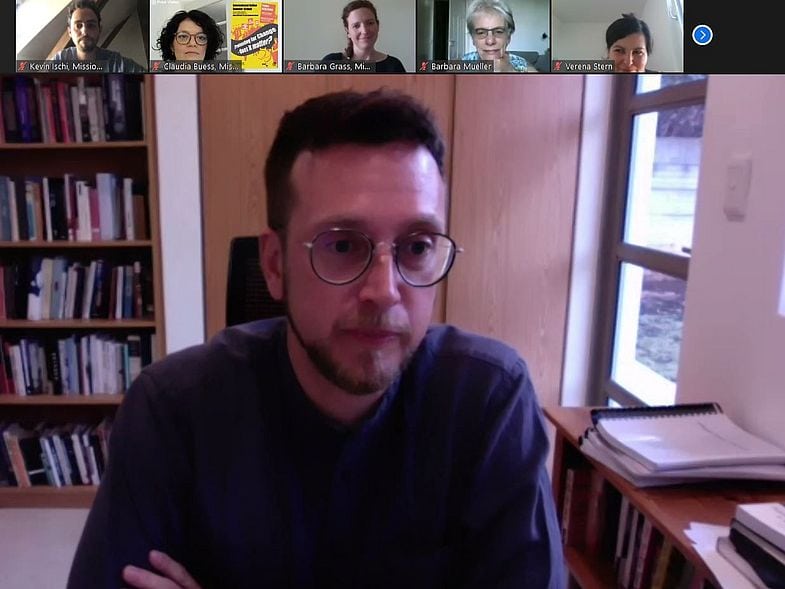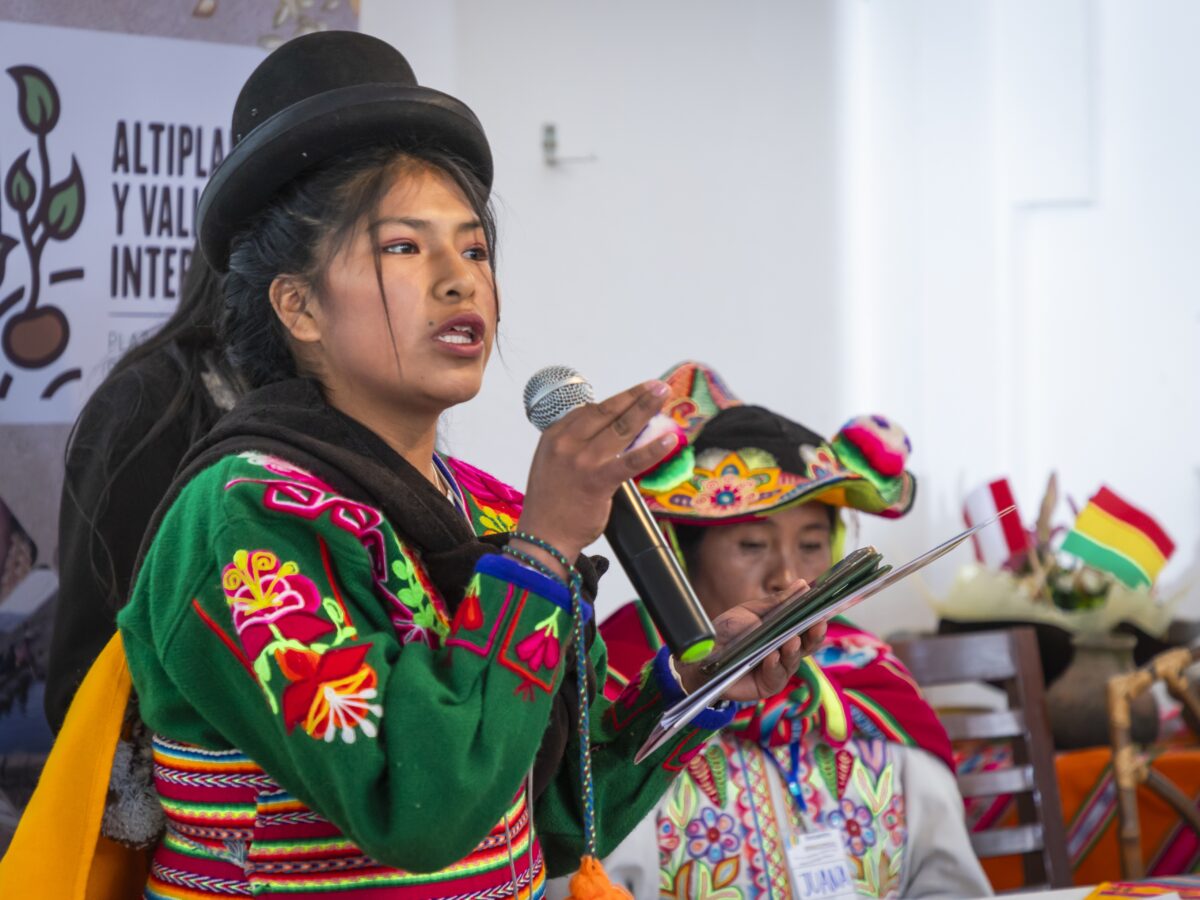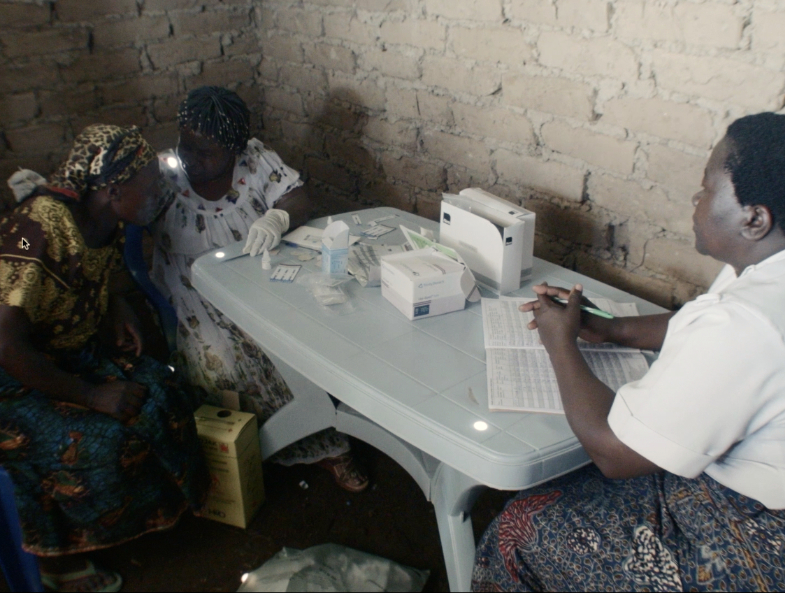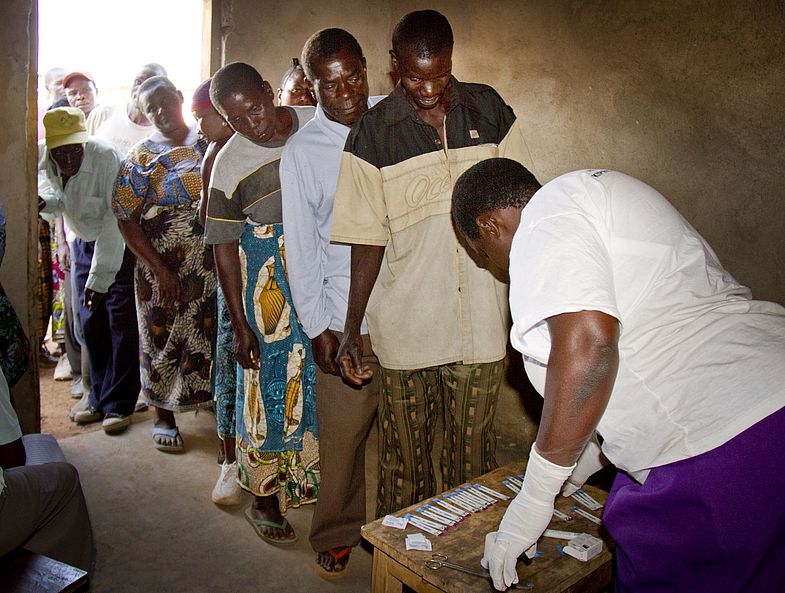"Protesting for change - does it matter?" - to this question, which was the motto of the event, all participants of this first Online Summer School of Mission 21 offered exciting, committed and partly historically illuminating answers. In two sessions on Friday, August 21 and Saturday, August 22, scholars contributed insights from their research on protest movements. The third session (on Saturday) belonged to activists from different continents who described their practical experiences.
The role of international solidarity
Julian Brown first offered an insight into South Africa's anti-apartheid movement. The political scientist at the University of Witwatersrand, Johannesburg, gave a compact and comprehensible tour of South Africa's history, from white colonization and oppression of the black population to the abolition of apartheid laws in 1990.
The years of protest were violently suppressed in South Africa. From the 1960s onward, it gained increasing international support and also led to calls for boycotts against the apartheid regime, some of which were widely followed. "The anti-apartheid movement, with its measures, became a model for many civil movements that followed. Today's solidarity movements each exhibit similar approaches to effecting change from below," Brown noted.
Protests against apartheid - and today on refugee policy
The historian Barbara Müller from Basel added experiences from a Swiss perspective. She showed how in this country knowledge about the regime of injustice grew despite its restrictive information policy, and how the solidarity movement grew as a result. The topics of racism and discrimination were thus discussed by a broad population.
Verena Stern, sociologist from Bielefeld, brought the topic into the present. She presented a diverse picture of protest forms on the topic of migration. For example, there are active movements on the streets calling for solidarity with migrants, as well as groups critical of migration. Today, online engagements and protests are an indispensable part of protest activities. Nevertheless, visibility on the street still plays an important role.
Activists from four continents
On Saturday morning, the focus was specifically on protest movements in Latin America. Sociologist Nicolás M. Somma provided an analysis of the different constellations and framework conditions of successful protest movements. Ethical ideas and attitudes that can encourage and support protests were also discussed.
Finally, reports on the experiences of activists offered an impressive insight into the fact that many people around the world are committed to combating various forms of discrimination. Whether the Jesuit Christoph Albrecht from Switzerland campaigns for refugees, whether Solveig Schrickel in Chile takes to the streets for the rights of indigenous people or Mary Kategile in Tanzania fights for more education for the benefit of women: what they all have in common is that they always understand their commitment at eye level with the beneficiaries.
The topics presented by the activists are also a mirror of conditions worldwide. Su-min Park from South Korea and the Nigerian Adenike Oladosu stand up for women on different levels. Because they are still disadvantaged worldwide. Halim Pratama from Indonesia, who works for Mission 21, is committed to the environment and against climate change. And Christian Castro fights for the recognition of the LGBT community. Marilyn Umurungi from Switzerland puts the fight against discrimination in a nutshell: racism exists worldwide, "that's why the fight against racism is always also part of a global movement, currently called Black Lives Matter."
The activists' commitment met with a great response, which was shown by the lively discussion and the many questions afterwards.
► Your commitment to young@mission21






